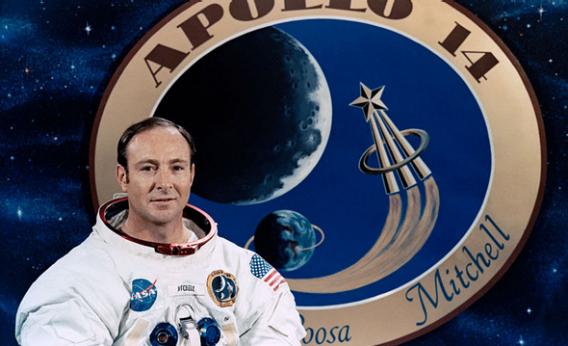Create a free profile to get unlimited access to exclusive videos, sweepstakes, and more!
Edgar Mitchell, 1930–2016

I'm very saddened to write that we’ve lost another Moon walker: His family just announced that Edgar Mitchell, Apollo 14 astronaut, died on Thursday.
By coincidence, he died on the 45th anniversary of his mission, just one day short of the anniversary of the date he landed on the Moon.
All 12 men who walked on the Moon are heroes. They risked their lives to go where no human had gone before, and our planet—our species—is the better for it. What Mitchell and his fellow astronauts did will forever be a part of history. Each mission was an amazing story, and I urge you to read about Apollo 14 (and also read Andy Chaikin’s fantastic A Man on the Moon, too, for insight into the Apollo program and the people involved).
To be fair, too, Mitchell will also be known for some of his more unconventional beliefs. For example, he was a vocal advocate in the UFO community. He believed that aliens were visiting Earth and that there’s a government conspiracy to cover it up. As you can imagine, he and I didn’t see eye to eye on that.
However, that doesn’t mean he believed in all conspiracies. I met Mitchell a few years ago at a gathering of space enthusiasts, and chatted with him briefly about people who believe the Apollo Moon landings were faked (I haven’t talked about it in a while, but a little while ago I wrote extensively on the subject). I asked him if he had ever run into Bart Sibrel, one of the biggest mouthpieces for that silly idea (yes, the guy Buzz Aldrin punched).
Mitchell laughed, and said that Sibrel came to his house on false pretenses (a Sibrel forte) and once inside started making accusations of fakery, demanding Mitchell swear on a Bible that he did in fact walk on the Moon. Mitchell told me he did swear on the Bible, and then said he immediately—and literally—kicked Sibrel out of his house.
That still makes me smile.
And a lot of people give Mitchell grief for conducting ESP experiments while on Apollo 14. That sort of thing was pretty popular in the late ’60s and early ’70s, and a lot of the experiments going on weren’t well conducted. Mind you, I don’t think such extrasensory powers exist; the evidence is at best very shaky and the cases that get popular tend to be fraudulent. However, I also have no problems in general testing such claims, and having three men out in space, tens or hundreds of thousands of kilometers from Earth does make for a decent control setting. I don’t really blame him for trying, even if he may have been biased toward believing in it.
My point? People are complicated. If there’s a bigger testament to the reality of the fields of science, mathematics, and engineering than walking on the Moon, then I’m unaware of it. But that didn’t prevent him from still having beliefs that were at odds with some the principles of those same fields. But in that sense he was no different than the rest of us. We all have them, to one degree or another.
I think it’s OK to remember that, especially when talking about the life and career of someone like Mitchell. It highlights the complex nature of how we think, of what makes us who we are. Of how it makes us human. Reflecting on ourselves is a natural response to hearing of someone’s death, and if his legacy is in part to remind us of what it means to be human, then that’s not such a bad one.
And one final note. Mitchell was the sixth human to step foot on the Moon. With his death, there are now only seven people alive who have left bootprints there. I hope that we see humans walking on the Moon once again, and soon; soon enough that the Apollo astronauts themselves can witness it. We owe them that much.


























